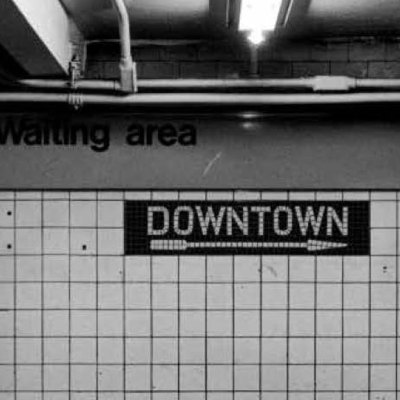When she was on speaking terms with Michael Bloomberg, Fran Lebowitz asked him what you call artists hanging around bars and smoking. The mayor didn’t know. Fran replied, ‘It’s called the history of art.’
‘New Yorkers have forgotten how to walk,’ she says. Fran has developed one of the most expressive walks in history: moving slowly yet with purpose, she’s like an ice-breaker, New York’s surging tide of humanity grindingly, reluctantly parting before her. The way she moves through a crowd on 42nd Street is Pretend It’s a City in a nutshell. Martin Scorsese’s seven-part series about writer and wit Fran Lebowitz is peripatetic, sarcastic, acidic, and where has it been all our lives? A fixture in the New York scene since the Seventies, she once described her main activities as ‘smoking and plotting revenge’. Hold on to your hat.
A writer without a typewriter or a computer, she uses the same tools all New Yorkers do: buses, subways and taxis. But mostly the sidewalk. This is something that was always admirable about New York, that no matter who you are, you’re going to have to get out of the bus, or your taxi, or even your limo, and navigate fifty or a hundred yards of trash, slush, dog poo, and what is most important, people, before you make it to your office or Dean & DeLuca.
Watching Pretend It’s a City you wonder, when was the last time a woman was given a platform for self-expression of this magnitude and scope? Given such polite attention? You might have to go as far back as Jackie Kennedy’s tour of the White House. But that was only an hour.
The places, the people she’s known! Max’s Kansas City! Wintour! Warhol! (They hated each other.) But, somehow, it’s not name-dropping; it’s neighbourly. Charles Mingus once chased her 20 blocks down Seventh Avenue – when they both collapsed, he overweight, she a smoker, he said, ‘Wanna go eat?’
And does she have an eye? She can sum up the history of Manhattan in one garment. ‘Brooks Brothers shirts – before they ruined the shirt department at Brooks Brothers – which was many years ago – the Brooks Brothers shirt really didn’t fit anyone. Because those people didn’t want their clothes to fit.’
This being Manhattan, if there is traffic, there are restful interiors. Fran’s a bookworm practically by trade, so we go with her to the New York Public Library (both its wonderful foyer and cool, calm stacks) and she leads us into the wondrous Argosy bookshop. In a quiet aside, she shares a book with us that her mother gave her when she was seven: ‘I couldn’t believe that I owned something that looked so important.’ Pretend It’s a City is literary in sensibility and in its chosen landmarks; exactly like New York.
Most of her extended conversations with her friend Martin Scorsese (the Ed McMahon to her Johnny Carson) take place in the bar of The Players, an old club on Gramercy Park. It suggests the Manhattan past, the culture Fran Lebowitz penetrated in the course of her career and has now taken over for the purpose of re-educating us in urbanity.
The ideal, traditional New York way of life, as referenced by Fran, could allow us all to survive as a species: no travel whatsoever, no ostentation, some form of sustenance (spaghetti and cigarettes). She’s at war with pretension, as New Yorkers ought to be. Incensed by a baker who refused to provide a cake for a gay marriage, saying ‘that’s my art,’ she retorted, ‘If you can eat it, it’s not art. If you can say, “I’ll have that and a cup of coffee,” that’s not art. That’s a snack.’
Fran would like people to come to New York. Not the suburban bean-counters who’ve invaded the place, barging in to set up their corporate frontages. But people who could contribute something: thinkers, artists (real ones), homosexuals. Outcasts. The modest and the poor. Just what a city needs: everything.
Sure, daily life there can be complex: ‘Everything in New York is like the Ring Cycle.’ Sure, it’s expensive. It was always expensive. ‘I did not come to New York at the age of eighteen to go into the real estate business’ – just rent an apartment and get on with it. ‘No one can afford to live in New York. Yet – eight million people do.’
Later Fran turns off the lights in Grand Central as she leaves, displaying a trait that all true New Yorkers have: conscience.
Pretend It’s a City is now streaming on Netflix.



